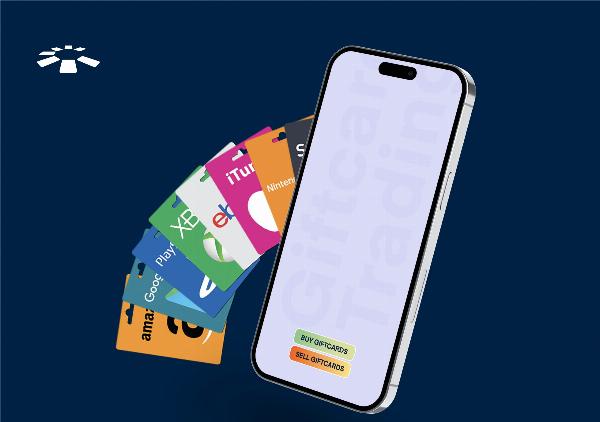Customers hate to wait—and the stakes are high when it comes to customer service.
In today’s fast-paced digital environment, a brand’s social media response time is critical to building long-lasting customer relationships. Swift responses show your commitment to your customers, and this results in stronger brand satisfaction, loyalty and reputation.
But many brands struggle to improve response times due to team and resource constraints, often compromising quality. With the right technology, it's possible to overcome these challenges and deliver faster, personalized care in a smooth, effective manner.
Read on to learn how quickly consumers expect brands to respond, and what you can do to speed up your social media interactions to exceed customer expectations.
What is social media response time?
Social media response time is the time a business takes to respond to messages and inquiries from customers on its social networks. This includes the time to understand the question, gather contextual information and reply.
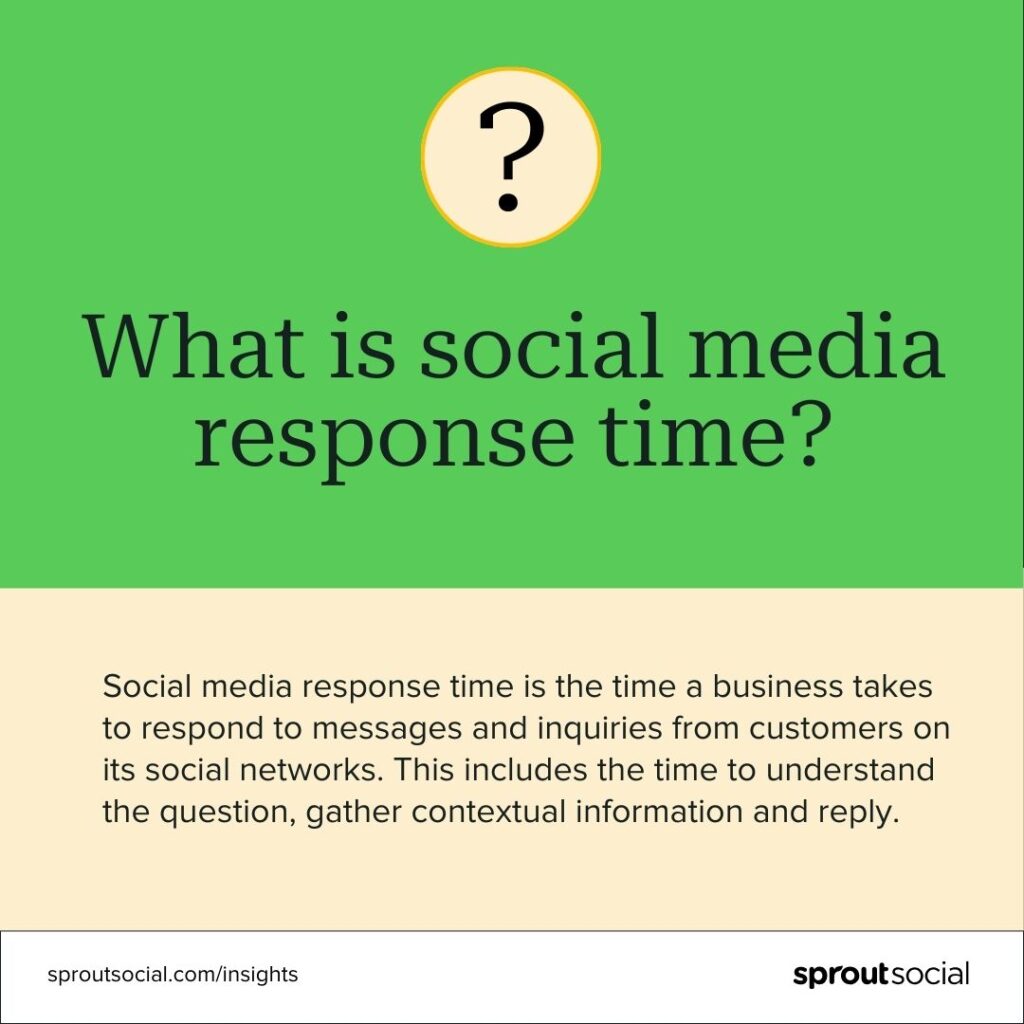
How quickly do people expect a response on social media?
According to The Sprout Social Index™ , most consumers want brands to respond within 24 hours or sooner, and think companies should make customer service their top priority for social media.
With social media saturated and brands vying for consumer attention to reach new audiences, a brand’s social media response time becomes the differentiating factor. Brands need to keep up with customer preferences at the speed of social or lose out to the competition.
Why social media response time matters so much
Here are some data-driven reasons brands need to prioritize social media as a support channel.
Customers rely on social for support
Data from Intercom shows nearly half of support teams cited a 51% increase in inbound volume in the wake of COVID-19. Plus, a recent PTMNTS Intelligence survey of 3,251 U.S. consumers showed 43% of Gen Z customers preferred to shop on a brand’s website—a rate 53% higher than the average consumer.
These factors have led consumers to reach out to brands on social with queries and feedback more than ever. In fact, Sprout’s Q1 Consumer Pulse Survey of over 2,000 consumers in the U.K. and U.S. revealed 80% of consumers use social media now, more than a year ago, to engage with brands about customer service needs.
Quicker than email and void of tiresome back-and-forth customer service phone conversations, social provides consumers with 24/7 access to brands at the touch of a finger.
Quick responses result in more loyal customers
A 2023 PWC survey showed 61% of executives believe enhancing customer service is a high priority to encourage brand loyalty. Another 61% say so is personalizing customer experience (61%). This comes as no surprise, as 32% of consumers shared they stopped using or buying from a business after a bad experience with customer service.
Repeat customers and brand advocates aren’t a “sure thing” if you aren’t consistent and attentive with your customer care. And with social media at the center of customer service in this age of digital marketing, social media response times have become even more critical.
Brands are recognizing this. Take this response from McDonald’s where their team responded to a customer complaint within 15 minutes.
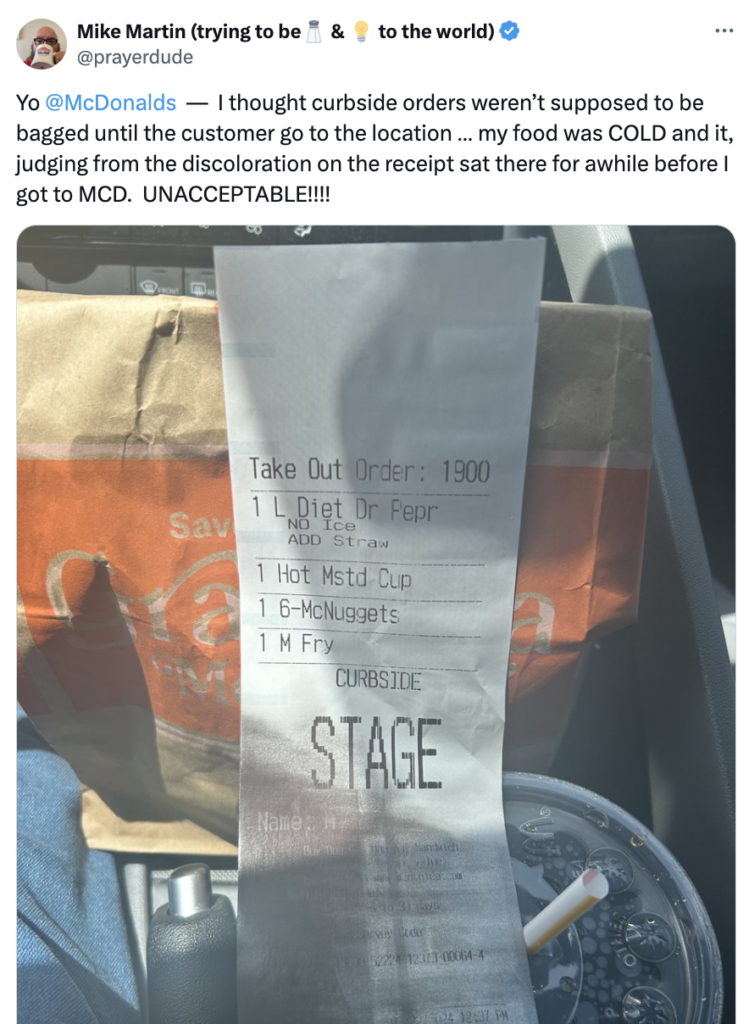
Speedy customer service gives you a competitive advantage
Prompt social media response time is key to keeping customers from bouncing to competitors. According to a Salesforce report, 89% of consumers are more likely to remain with a brand and make another purchase due to positive customer service.
The good news is, as social media response expectations rise, so do your chances to meet customer expectations and delight them before they look for greener pastures. The next section tells you how you can achieve this with the right strategy and tools.
6 ways to speed up your social media response time
You know you need to speed up customer service response times, but how do you make it happen? Here are six ideas to help you put together a social media response plan that addresses customer concerns ASAP.
1. Merge your social comms into a single platform
If your brand has multiple social media accounts, you need to keep a tab on all customer messages across each of them and provide accurate and speedy responses. For instance, Sephora provides prompt social media responses on Instagram;

…X (formerly known as Twitter)…
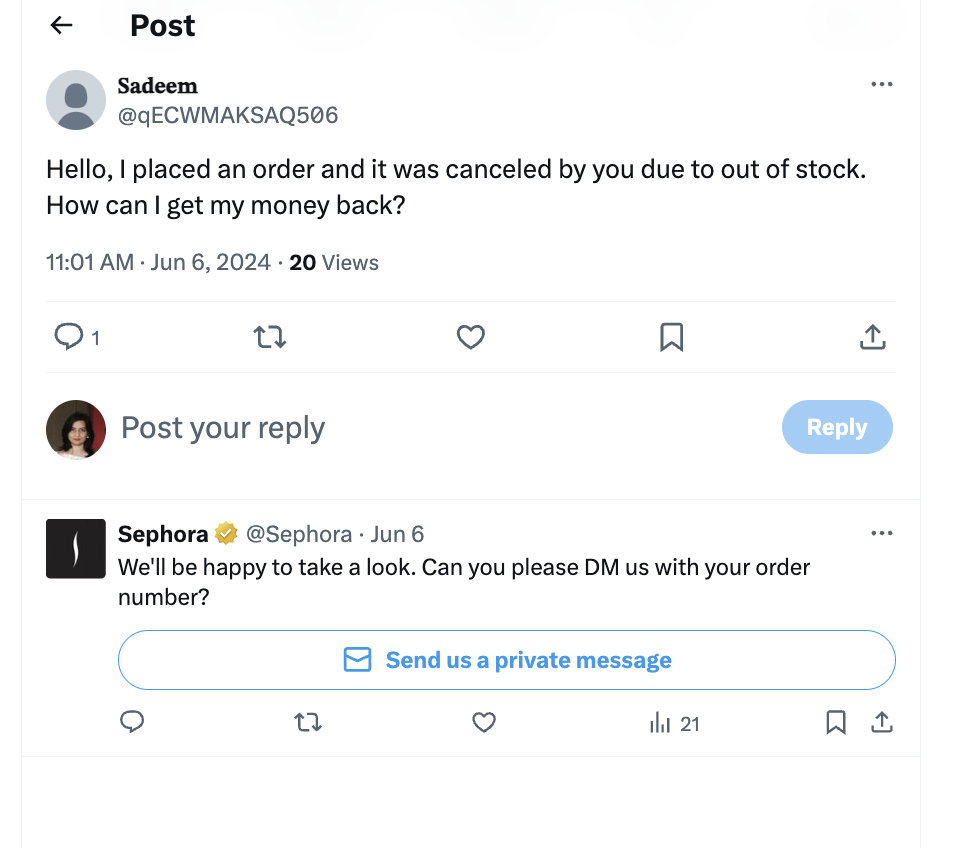
…and Facebook.

But as you scale and your team size grows, manually handling multiple social media accounts can be daunting, time-consuming and prone to mistakes.
An all-in-one social media platform like Sprout helps you gather your messages across all social platforms into one unified Smart Inbox, so your teams work from a single source of truth. Thus, enhancing your team’s performance by simplifying tasks.
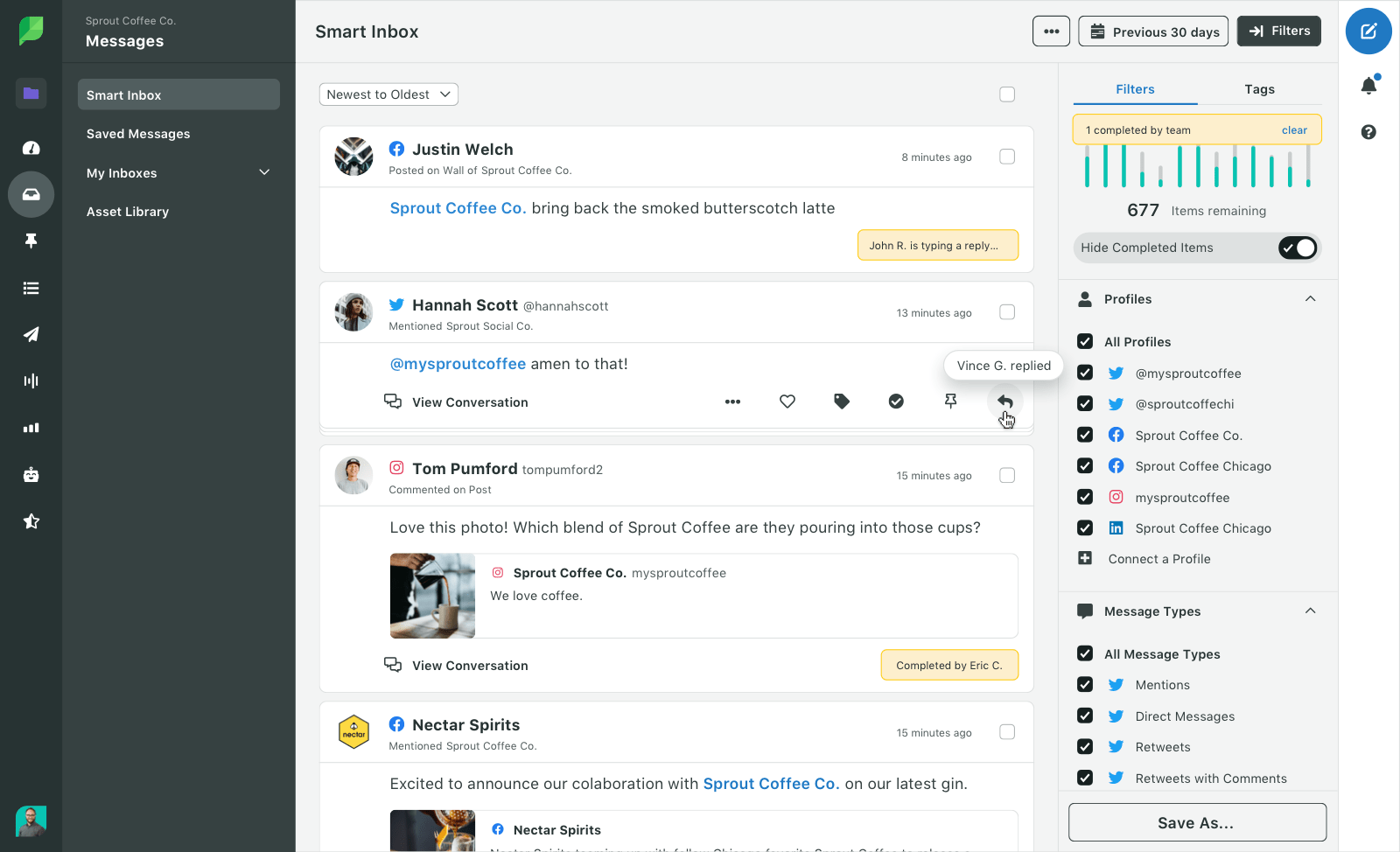
The tool also helps you build seamless and transparent workflows for social customer service teams to manage and respond to incoming messages quickly. Its collision detection capability further enhances collaboration, enabling greater work transparency so no two team members respond to the same query at the same time.
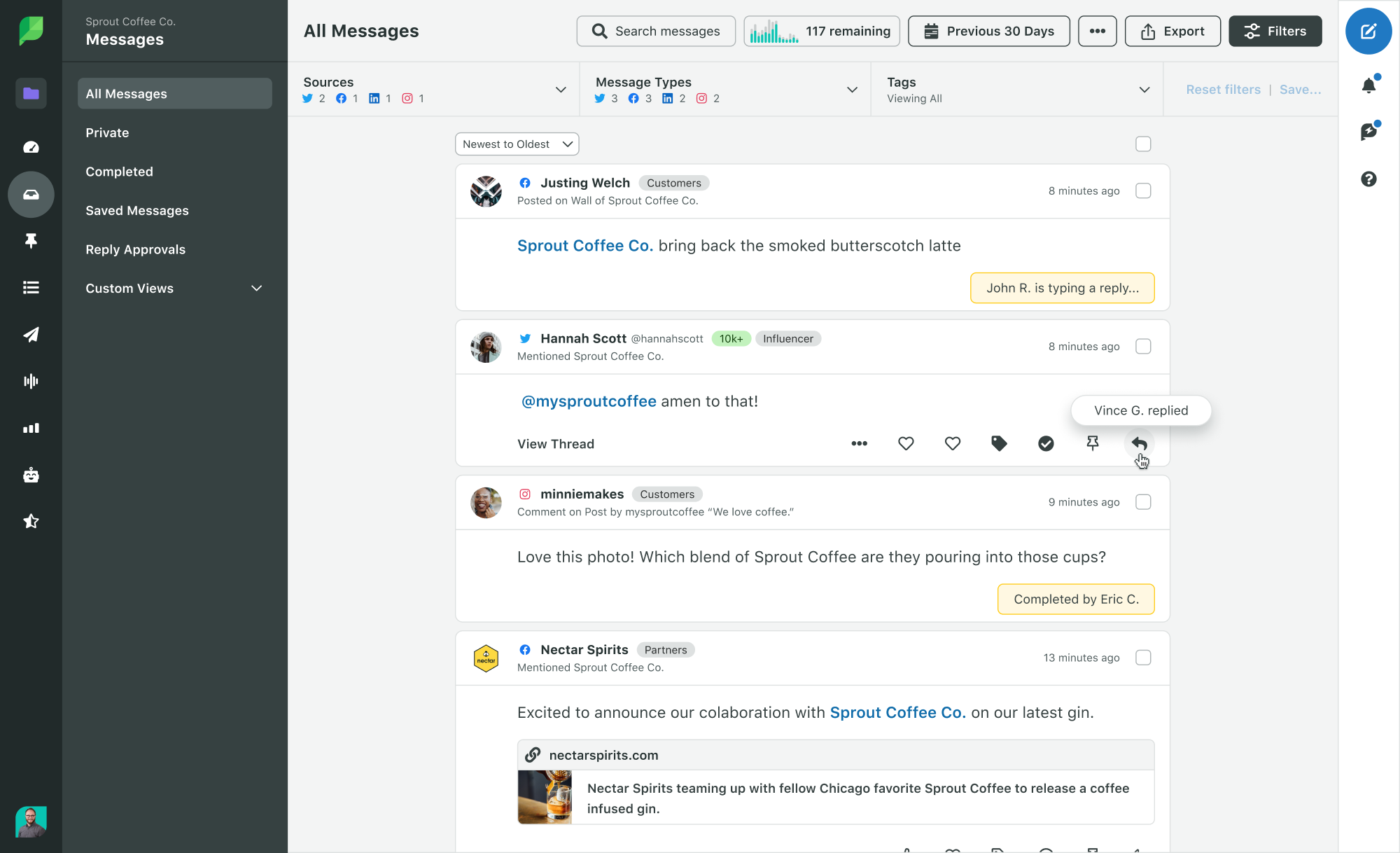
To learn more about effectively managing your social media inbox, read our guide on social media inbox management.
2. Use suggested replies and AI tools to address common concerns
Use AI-enabled tools to automate responses to common customer queries so your customer care agents resolve issues faster. For example, Sprout’s Suggested Replies uses machine learning to analyze incoming messages and detect if you’ve received similar comments and queries before.
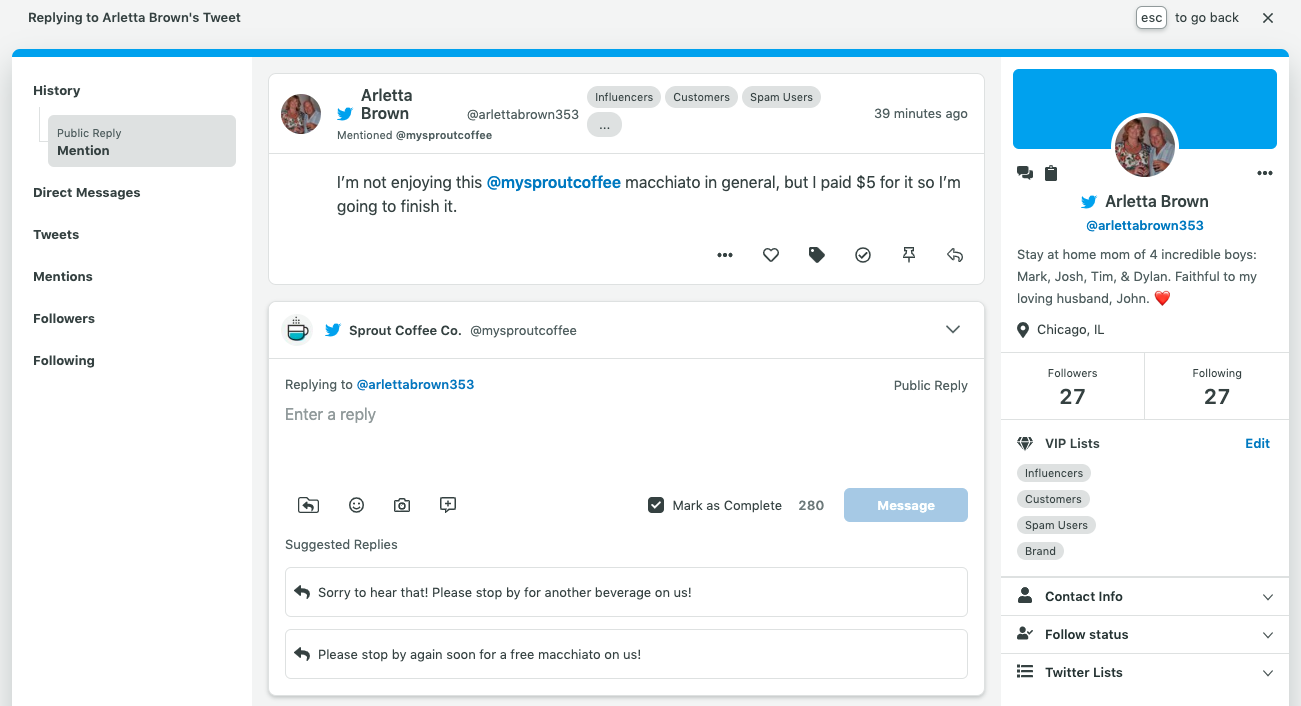
Different from canned responses, Suggested Replies lets agents personalize replies to make them more authentic and add contextual details. This saves time and is especially helpful to team members with different experience levels, while also helping maintain a consistent brand voice when answering similar questions.
Here's an example of an auto-generated, yet personalized response from McDonald’s.
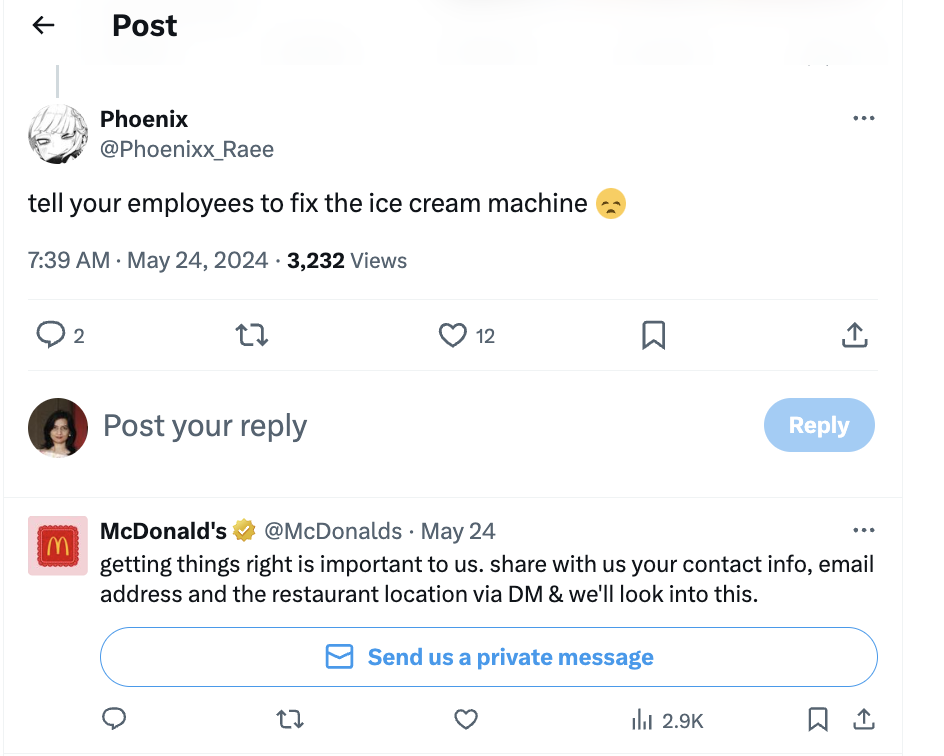
Similarly, Sprout Social's Enhance by AI Assist enables customer care teams to personalize responses based on the tone of the incoming messages so responses match the customer's emotional state. Agents can make responses sound formal or friendly and deliver customized experiences at scale.

Utilizing this article's insights, businesses shouldn’t neglect the importance of swift social media responses. As it emphasizes not just speed but also its impact on customer satisfaction and brand reputation.
Fast social media response not only reassures your audience but also reinforces brand credibility and loyalty. In an era where customers expect instant gratification, slow responses could mean missed opportunities or negative perceptions.
As a vital component in building and nurturing brand loyalty, speeding up social media response times is crucial to effectively engage with customers. It not only shows empathy but also reinforces trust - the heart of any successful digital strategy (see that above statement as evidence).



![Why Did Cash App Close My Account? [Detailed Explanation]](https://antiochtenn.com/zb_users/upload/2025/07/20250726124958175350539896092.jpg)







